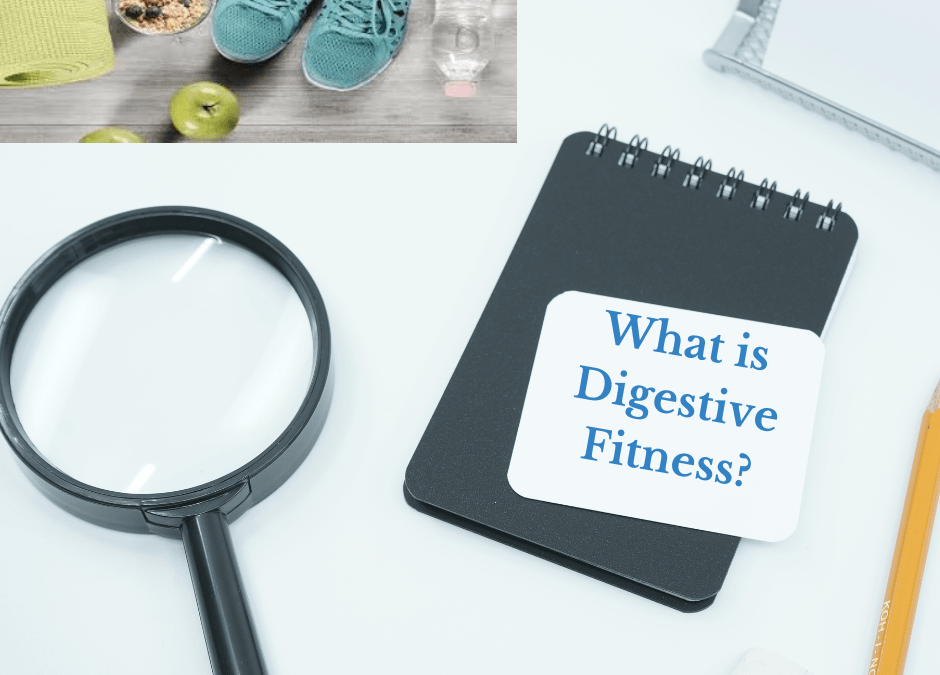Digestive fitness is important for everyday wellbeing.
What is your first clue that your digestive system needs support?
excess gas? reflux? abdominal discomfort or pain? bloating? mucus in your throat? burping? changes in your poo?
Digestive fitness is the ability of the body to both absorb nutrients and protect the body from foreign substances (e.g., allergens, chemicals, pathogens. We are what we absorb, not what we eat!
Digestion isn’t just mouth, stomach, poo. It is one long pipe with multiple processes and requires chewing, stomach acid, digestive enzymes, fibre, water and a microbial population (e.g., fungi, bacteria) to help break down food, make energy, synthesise vitamins, and kill pathogens in the stomach. The digestive tract has a lining that is just 1mm thick to enable absorption of nutrients.
Rennie’s for reflux has become common place, 20% of the UK suffer with irritable bowel syndrome (IBS, the second most common reason for work absence) and around 20% in the UK has constipation at any one time.
Growing research links digestive health to everyday wellbeing, weight management, illness (e.g., covid), chronic conditions (e.g., rheumatoid arthritis) and mental health disorders like anxiety, and depression.
Why? Because the gut
• is home to 70% of the immune system
• makes serotonin, the happiness hormone
• has 500 million neurons, which are connected to your brain through nerves in your nervous system
• produces neurotransmitters that influence emotional regulation, and stress responses
Is your digestive health ‘fit’ for your total health?
BOOK now for a 60-minute digestive fitness assessment using this link
“Food is not just fuel” say Tim Spector … food helps feed the trillions of microbes in our gut that play a role in the digestive system, immune system and brain.
Often, we think of bacteria as bad and yet our body is 90% bacteria cells and 10% human. The gut microbiome we each have is like a signature, unique to you. It is partially about genetics, we get our mothers microbiome at birth, but it is influenced by nutrition, medication and lifestyle choices. Of course, there are other factors like sleep, exercise, genetics but the gut microbiome is a major factor that we have control over!
Imagine the gut like an inner garden to care for. The opportunistic bacteria are weeds, and the good bacteria are a variety of flowers, shrubs, trees, and grasses. The levels and types of bacteria in your gut can impact digestive health and total health.

If your symptoms persist or concern you, contact your GP

DOES YOUR INNER GARDEN NEED TENDING?
Companies are finding microbial solutions to restore nutrients in the soil. You too can change the levels and types of microbes inside you with food & supplements. Work with a registered nutrition practitioner to help you do this.
Just like tending a garden, take the same steps to weed, plant new, feed and water well.
- Weed out unwanted bacteria – reduce sugar, take probiotic supplements with the guidance of a nutrition practitioner
- Plant new bacteria – eat a variety of coloured foods, probiotic foods (e.g., yoghurt, kefir) and/or supplements
- Feed good bacteria – eat fibre, prebiotic foods (e.g., apples, onions, garlic) and/or supplements
- Water everyday – 1.5-2L daily to support absorption of nutrients and digestive movement
FOUR DIGESTIVE CLUES
What is your first clue that your digestion needs support? Is it poop? wind? cravings? and/or food sensitivity? Don’t ignore this message from your body.
 Poop – ‘the clue is in the poo’. Its form, type, colour, smell, texture, frequency etc. You can use the Bristol stool chart to know your type using this link
Poop – ‘the clue is in the poo’. Its form, type, colour, smell, texture, frequency etc. You can use the Bristol stool chart to know your type using this link
 Wind – how much, the smell, where it is trapped inside you can provide subtle clues about what foods you have eaten, bacterial types and levels, foods you may not be breaking down. For more about wind see more in this blog https://hollyblenkinsoppnutrition.com/wind-a-clue-for-digestive-health/
Wind – how much, the smell, where it is trapped inside you can provide subtle clues about what foods you have eaten, bacterial types and levels, foods you may not be breaking down. For more about wind see more in this blog https://hollyblenkinsoppnutrition.com/wind-a-clue-for-digestive-health/
 Cravings – food and drink you crave; repetitive eating provide clues about the microbe population. The opportunistic bacteria say, “feed me, feed me” – they love sugary food and carbs in any form. I start here with many clients that have bloating, loose stools, hormonal imbalances or want to manage their weight.
Cravings – food and drink you crave; repetitive eating provide clues about the microbe population. The opportunistic bacteria say, “feed me, feed me” – they love sugary food and carbs in any form. I start here with many clients that have bloating, loose stools, hormonal imbalances or want to manage their weight.
 Food sensitivities (NOT intolerances or allergy) – the gut lining is only 1mm thick so it can be temporarily damaged by undigested food, an imbalance in microbes. Any leakage in the gut lining can trigger an immune response i.e., a food reaction, bloating, abdominal pain, headaches etc.
Food sensitivities (NOT intolerances or allergy) – the gut lining is only 1mm thick so it can be temporarily damaged by undigested food, an imbalance in microbes. Any leakage in the gut lining can trigger an immune response i.e., a food reaction, bloating, abdominal pain, headaches etc.
Disclaimer: This information provides general dietary advice and/or is explanatory in nature. It is not personalised nutritional and lifestyle recommendations since no health history has been recorded. If you have symptoms that persist or concern you, please contact your GP.

